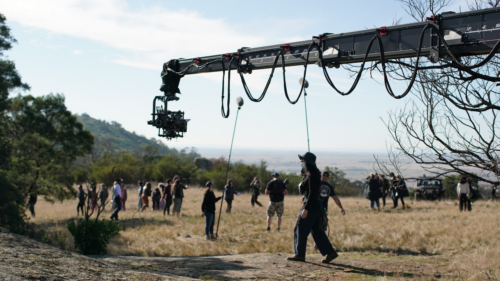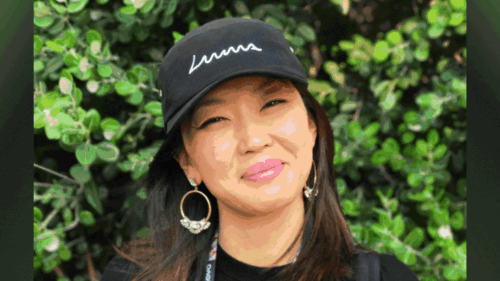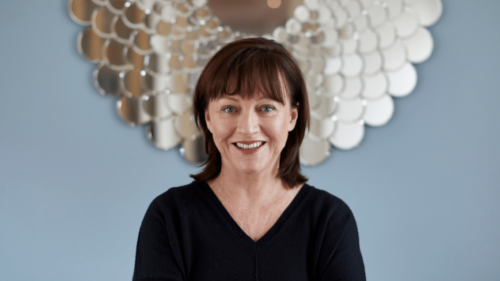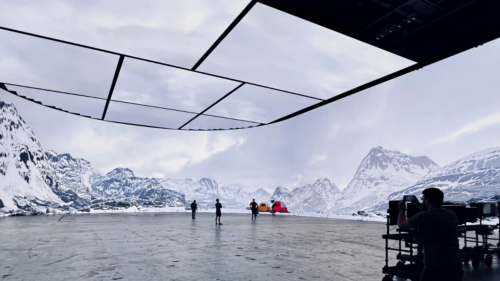/News 21.07.22
FIRST NATIONS SPOTLIGHT: NORTHERN TERRITORY WRITER AND DIRECTOR, STEVEN MCGREGOR
Steven McGregor is an award-winning First Nations Writer and Director from Northern Territory’s capital, Darwin. He co-wrote Sweet Country, a feature directed by Warwick Thornton and produced by David Jowsey and Greer Simpkin.
WATCH THE FULL VIDEO SPOTLIGHT BELOW
Or catch the full transcribed version at the end of the article
WHAT MAKES A GOOD DIRECTOR?
“Collaboration. At the end of the day, the Director takes credit for everything, but there’s a lot of people behind the Director who make it all happen. [Also] to listen, don’t be afraid to say ‘I don’t know.’ You don’t have to have all the answers, you’re allowed to stumble and lean on people.”
“You have to trust people. I like to give the people I work with a sense of ownership on a film, so when they go away they say, ‘I made this film, I didn’t work on this film’.
Steven McGregor
So, trust your people, get a good team behind you, and have fun, cause it is awesome.
I mean, it’s hard work but it’s deadly fun.”
Sweet Country screened in competition at the 2017 Venice Film Festival, where it won the Special Jury Prize. The film was screened and well-received widely across the international film festival circuit, including the BFI London Film Festival. Sweet Country garnered additional accolades by winning the Platform Prize at the 2017 Toronto International Film Festival, and winning AWGIE and AACTA awards for Best Original Feature Film Script and Best Film in 2018.
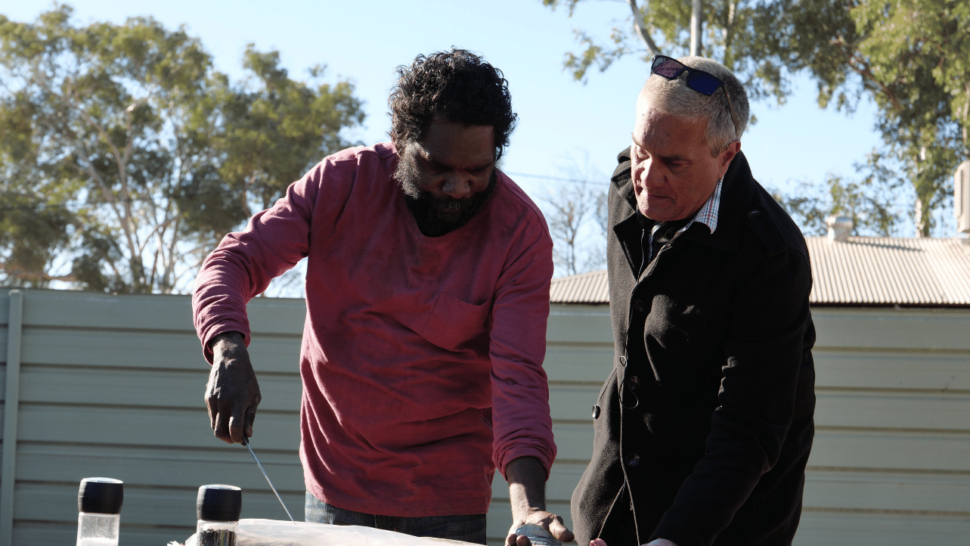
Recently, Steven directed and wrote two episodes for the celebrated four-part drama mini-series, True Colours, produced by Bunya Productions. Which was distributed and sold internationally by About Premium Content, including to the US Sundance Channel. The series continues to gain praise and recognition as it reaches a broader audience. Screening at a special event for the 2022 Sydney Film Festival, festival director Nashen Moodley described the series as ”beautifully done.”
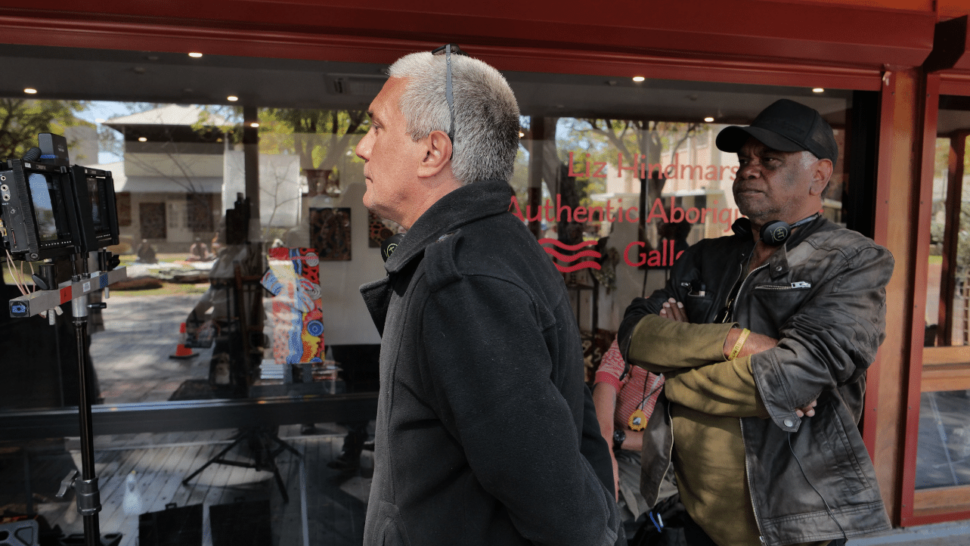
McGregor’s resume also includes Directing the AACTA Award-nominated Australian Indigenous comedy series, Preppers. The six-part series follows a misfit community preparing for the apocalypse, by attempting First Nations survival exercises. After the group becomes lost, they find themselves being tracked by a mythical creature.
Pretty Boy Blue, an episode Steven wrote for the drama series Redfern Now, won the AACTA Award for best screenplay in television in 2013 & he was nominated in the same category in 2014 for series 2 of Redfern Now for his screenplay, Babe in Arms. He wrote four episodes across the two ABC series. Steven also wrote the Redfern Now telemovie Promise Me, which screened on the ABC to critical acclaim and was nominated for an AWGIE in 2015.
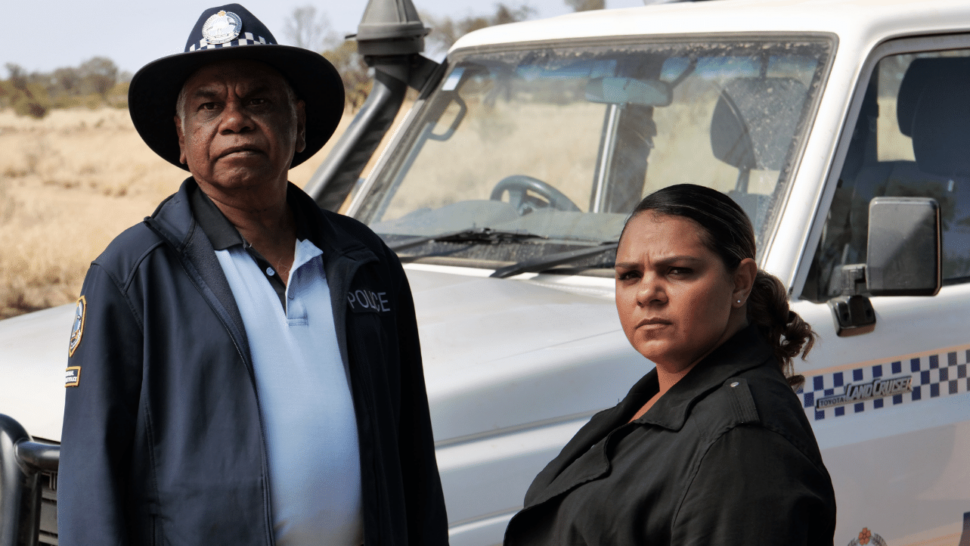
Steven’s credits include True Colours, Mystery Road: Origin, Mystery Road Series 1& 2, The Warriors, Big Name No Blanket, Fires, Blue Water Empire, Redfern Now. His directing credits include True Colours, Preppers, Looky Looky Here Comes Cooky, Blue Water Empire, Black Comedy, Servant or Slave and Croker Island Exodus.
Full transcription of the interview with Steven here:
HOW DID YOU GET STARTED?
By accident actually. I remember, I just left school, and I was sitting on the couch, and I hadn’t got a job and my mum walked in and said, it’s time you got off your a** and got a job. So we came into the NT government and they had a video traineeship with the Department of Chief Ministers, where they had an Aboriginal liaison officer. And one of the things they did was produced an Aboriginal video magazine, which was a quarterly video, telling stories in communities about enterprise and that. And I’d always been interested in cameras and photography and that, so I said yeah, sounds interesting. So that was a Friday, then I started on Monday. I was a pack-horse for a few months carrying stuff around but they were really good people working there so they let me get my hands on the gear.
Yeah, from there, I just got hungry to tell stories. I did camera and editing, then I went to Inparja television for a few years as a news cameraman/ editor. And then there was a traineeship at karma, Central Australian Aboriginal Media Association as a trainee producer, writer and director, and I said yeah, I’ll do that. I had no idea what those things involved.
WHAT MAKES A GOOD DIRECTOR?
Collaboration, at the end of the day the director takes complete credit for everything, but there are a lot of people behind the director who makes it all happen, you know. And I think, to listen, and don’t be afraid to say, “I don’t know”. You don’t have to have all the answers. You’re allowed to stumble and lean on people, and you have to trust people. For me, I like to give the crew I work with a sense of ownership on a film or a doco, whatever. So when they go away, they say, “I made this film I didn’t work on this film”. So trust your people and get a good team behind you. And have fun, because it is awesome. I mean, it’s hard work, but it’s deadly fun.
YOU RECENTLY WROTE AND DIRECTED ON TRUE COLOURS, HOW DID THAT COME ABOUT?
It’s Warren Williams’s fault, Warren H. Williams from Dari in Central Australia. He always had this idea of a cop show sitting in a community with a female protagonist, a female detective. And so he approached Erica Glynn. Together, those two brought me and Daniel McLean into the room. And that was in 2015, so we sort of came up – we had a few story rooms and worked up a Bible, and then it sort of moved really quickly. We shot in 2021. And, yeah, I wrote two scripts and director two EPs along with Erica Glynn and Daniel McLean wrote a script as well.
I think we managed it really well. We all wanted to tell the same story in the story producer made sure we weren’t all going off on different tangents. But no we all worked really well together, Danielle as well, because Erica is from there. Plus, we had Warren in the room, he kept us on track in terms of all the cultural elements and all the skin kinship systems and made sure we could say the things we’re allowed to say and not step on cultural protocols.
TELL US ABOUT CASTING LOCALS AND WORKING WITH FIRST-TIME ACTORS. WHAT CHALLENGES DID THIS PRESENT AND WHAT ARE SOME OF THE BENEFITS OF TAKING A RISK ON UNTESTED TALENT?
Taking risks on untested talent, in a way they’re not compromised by technique, where the people we cast came from their community they spoke the language, and they knew the world. So we didn’t overbear them with technical directing, and directions. It was just about giving them a sense of the character, where they came from, where they were going and what we needed at this moment. And they will leap at it, know it was amazing. There were some people that wanted to come along for the ride because they wanted to get over their shyness, and they said jumping in front of a camera helped them so, very brave.
HOW IMPORTANT WAS IT TO HAVE LARGE SECTIONS OF TRUE COLOURS IN LANGUAGE?
I think that was integral, the fabric on the series, because that’s the countryside. That’s the landscape it comes from, the people it comes from and it just adds to that sense of truth. I think there was resistance because people said “oh, we can’t have subtitles,” but its like people reading French subtitles, Japanese subtitles, whatever, you know. So we did push hard on that, we did have to pull it back. So we did meet a middle ground somewhere in the middle, but on the day, sometimes we just change it back into Aranda. I just think it gives us that sense of truth and sense of place. And also the people we’re proud to talk their language, and the audiences, they had a screening out of Mulliner a few weeks ago and for people to hear their own language that just lifts their spirits.
HOW DO YOU THINK STORYTELLING IN AUSTRALIA IS PROGRESSING SINCE YOU STARTED YOUR CAREER?
Well, I think the First Nations stories have sort of opened up the industry, to go ‘this is a new voice’ and that’s been developing over the last 30 years. Through various government agencies, which has developed a lot of industry practitioners, I’ve benefited from that. I think all of us now that able to get stories made have come through that system. I think there’s a new respect and a new want to hear these stories, not just from the First Nations community but also from, you know, Chinese communities, Vietnamese communities, it’s just not all blond hair, blue eyes, and I think that’s been reflected by the stories that have been developed.
WHAT IS YOUR FAVOURITE THING ABOUT FILMING IN THE NORTHERN TERRITORY?
Territory has so many stories to tell, and we’re only just scratching the surface. So you know, there’s a lot of good storytellers here and I suppose that’s one of the best things. These are untapped stories, unique stories to this place to this country, to these people. So for me, I find it exciting and I can tell stories from my heart, and from where I’m from.
IS THERE ANYONE YOU WOULD LOVE TO WORK WITH?
I’d love to work with the Coen Brothers, I just think their range of storytelling and their skill at storytelling and their writing is just amazing. I don’t think they’ve had many misses i’ve seen, or maybe a couple, but I’ve watched all their films. I suppose my favourite is Raising Arizona, I can watch that over and over again and of course Fargo. Yeah Coen brothers would be right up there.
Feature image: Steven McGregor, Warren H Williams and Penny Smallacombe on the set of True Colours. Photo: Bradley Patrick.
With thanks to Screen Territory






